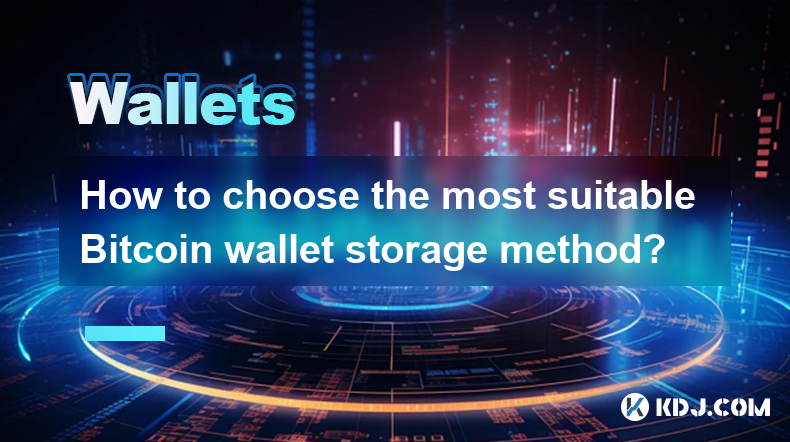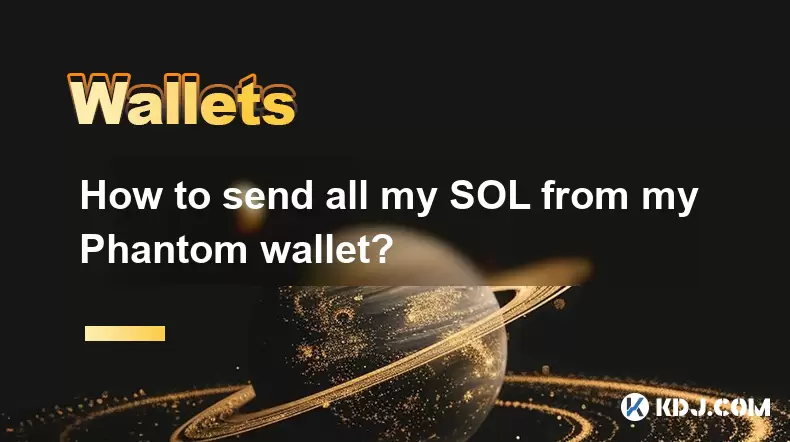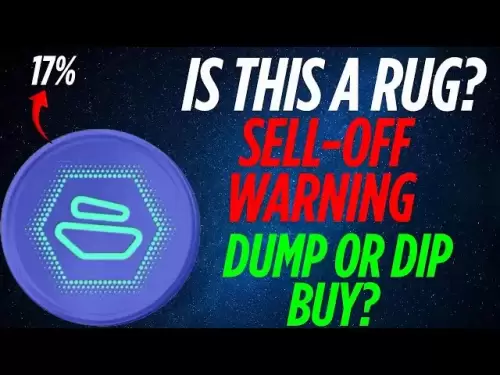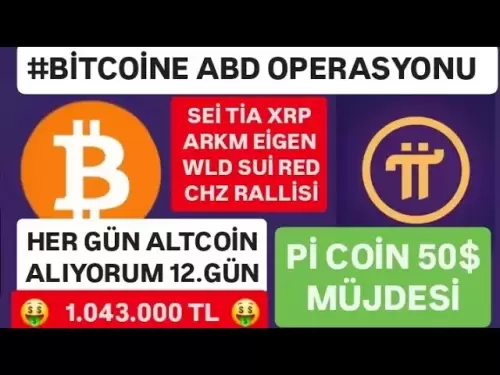-
 Bitcoin
Bitcoin $108,708.8110
0.60% -
 Ethereum
Ethereum $2,561.6057
1.91% -
 Tether USDt
Tether USDt $1.0001
-0.03% -
 XRP
XRP $2.2795
0.57% -
 BNB
BNB $662.2393
1.00% -
 Solana
Solana $153.1346
3.74% -
 USDC
USDC $1.0000
0.00% -
 TRON
TRON $0.2877
0.97% -
 Dogecoin
Dogecoin $0.1710
3.93% -
 Cardano
Cardano $0.5871
1.61% -
 Hyperliquid
Hyperliquid $39.6663
1.68% -
 Sui
Sui $2.9032
0.79% -
 Bitcoin Cash
Bitcoin Cash $496.1879
1.71% -
 Chainlink
Chainlink $13.5807
3.01% -
 UNUS SED LEO
UNUS SED LEO $9.0777
0.61% -
 Stellar
Stellar $0.2514
4.51% -
 Avalanche
Avalanche $18.1761
1.86% -
 Shiba Inu
Shiba Inu $0.0...01173
1.72% -
 Toncoin
Toncoin $2.8010
-4.23% -
 Hedera
Hedera $0.1594
3.21% -
 Litecoin
Litecoin $87.0257
-0.53% -
 Monero
Monero $319.1217
1.79% -
 Polkadot
Polkadot $3.3853
0.68% -
 Dai
Dai $0.9999
-0.01% -
 Ethena USDe
Ethena USDe $1.0003
0.02% -
 Bitget Token
Bitget Token $4.3420
-0.97% -
 Uniswap
Uniswap $7.3772
1.39% -
 Aave
Aave $286.6277
5.61% -
 Pepe
Pepe $0.0...09994
2.33% -
 Pi
Pi $0.4589
1.76%
How to choose the most suitable Bitcoin wallet storage method?
Secure Bitcoin storage depends on individual needs; hot wallets offer convenience but increased risk, while cold wallets prioritize security but less accessibility. Choose wisely based on your Bitcoin holdings, tech skills, and risk tolerance.
Mar 23, 2025 at 09:42 pm

How to Choose the Most Suitable Bitcoin Wallet Storage Method?
Choosing the right Bitcoin wallet storage method is crucial for securing your cryptocurrency. The ideal method depends on your individual needs, considering factors like security, convenience, and the amount of Bitcoin you hold. There's no one-size-fits-all answer; understanding the different options is key to making an informed decision.
Understanding Bitcoin Wallet Types
Before selecting a storage method, you must understand the different types of Bitcoin wallets. These broadly fall into two categories: hot wallets and cold wallets. Hot wallets, like mobile apps or web wallets, are connected to the internet, offering ease of access but increased vulnerability to hacking. Cold wallets, such as hardware wallets or paper wallets, are offline, providing superior security but less convenience.
Hot Wallet Options: Convenience vs. Risk
- Software Wallets (Desktop & Mobile): These offer a balance between convenience and security. Desktop wallets provide more control and features, while mobile wallets prioritize portability. However, they are still vulnerable if your device is compromised. Thorough research is essential to select a reputable provider.
- Web Wallets: These are accessed via a browser, offering accessibility from any device. However, they are often considered the least secure option because they are hosted by third parties, making them targets for hackers. Only use well-established and trusted web wallets.
- Exchange Wallets: Many cryptocurrency exchanges offer built-in wallets. These are convenient for trading but should not be used for long-term storage due to their susceptibility to hacks and potential exchange insolvency.
Cold Wallet Options: Security as the Priority
- Hardware Wallets: These are physical devices designed specifically for storing cryptocurrencies offline. They provide the highest level of security against hacking and theft. Reputable brands like Ledger and Trezor offer robust security features. Always verify the authenticity of your hardware wallet to avoid counterfeit devices.
- Paper Wallets: These involve generating private and public keys and printing them onto paper. While incredibly secure if kept safe and undamaged, they are susceptible to physical damage, loss, or theft. Proper storage is paramount.
Factors Influencing Your Choice
The best Bitcoin wallet storage method is highly dependent on your individual circumstances. Consider these factors:
- Amount of Bitcoin: For small amounts, a hot wallet might suffice. However, for significant holdings, a cold wallet is strongly recommended.
- Technical Proficiency: Hardware wallets require a slightly steeper learning curve than software or web wallets. Choose a method you are comfortable managing.
- Security Needs: Prioritize security if you hold a substantial amount of Bitcoin. Cold storage offers the best protection.
- Frequency of Use: If you frequently buy, sell, or trade Bitcoin, a hot wallet's accessibility is more advantageous. If you're primarily holding, a cold wallet is preferable.
Security Best Practices Regardless of Wallet Type
- Strong Passwords: Use long, complex, and unique passwords for all your wallets. Consider using a password manager.
- Two-Factor Authentication (2FA): Enable 2FA whenever possible to add an extra layer of security.
- Regular Software Updates: Keep your software wallets updated with the latest security patches.
- Secure Device Management: Protect your devices with strong passcodes and antivirus software.
- Backup and Recovery: Always back up your wallet's seed phrase or private keys and store them securely in multiple locations. Never share this information with anyone.
Choosing the Right Method: A Personalized Approach
There is no single "best" Bitcoin wallet. The optimal choice depends entirely on your individual needs and risk tolerance. Weigh the pros and cons of each option carefully before making a decision. Remember, the security of your Bitcoin is paramount.
Frequently Asked Questions:
Q: What is a seed phrase, and why is it so important?
A: A seed phrase is a list of words that acts as a backup for your Bitcoin wallet. It allows you to recover your Bitcoin if you lose access to your wallet. Keeping it secure is crucial, as anyone with access to your seed phrase can control your Bitcoin.
Q: Are hardware wallets completely unhackable?
A: While hardware wallets offer a significantly higher level of security than hot wallets, they are not entirely unhackable. They can be compromised through physical attacks or sophisticated phishing schemes. Always buy from reputable vendors and follow best practices.
Q: What's the difference between a public key and a private key?
A: Your public key is like your bank account number – you can share it freely to receive Bitcoin. Your private key is like your bank password – it's essential for authorizing transactions and must be kept secret.
Q: What should I do if I lose my private keys or seed phrase?
A: Losing your private keys or seed phrase means you lose access to your Bitcoin. There is generally no way to recover them. This highlights the importance of backing up your seed phrase and storing it securely.
Q: Are all Bitcoin wallets created equal?
A: No, Bitcoin wallets vary significantly in terms of security, features, and user-friendliness. Thorough research is essential to find a wallet that meets your needs and risk tolerance. Look for wallets with strong reputations and positive user reviews.
Disclaimer:info@kdj.com
The information provided is not trading advice. kdj.com does not assume any responsibility for any investments made based on the information provided in this article. Cryptocurrencies are highly volatile and it is highly recommended that you invest with caution after thorough research!
If you believe that the content used on this website infringes your copyright, please contact us immediately (info@kdj.com) and we will delete it promptly.
- Ripple, XRP, and AI Tokens: Is Ruvi AI the Next Big Thing?
- 2025-07-08 05:30:12
- Crypto Investment: BlockDAG, Litecoin, and the Solana Meme Coin Mania
- 2025-07-08 06:10:12
- Altcoins in Focus: BlockDAG, Litecoin, and the Shifting Crypto Landscape
- 2025-07-08 05:35:12
- BNB's Bullish Breakout: Riding the $600 Support Level Wave
- 2025-07-08 04:55:13
- Solana ETF on Hold: SEC Delay and Crypto Regulation Scrutiny
- 2025-07-08 06:10:12
- Altcoin, Date, Price: Navigating the Crypto Bill & Meme Coin Mania
- 2025-07-08 06:15:12
Related knowledge

How to cancel a pending transaction in Phantom wallet?
Jul 03,2025 at 07:21pm
Understanding Pending Transactions in Phantom WalletA pending transaction in the Phantom wallet occurs when a user initiates a transfer or interaction with the Solana blockchain, but it hasn't yet been confirmed by the network. This can happen due to various reasons such as low transaction fees, network congestion, or incorrect gas settings. It's import...

How to see the estimated value of my tokens in Phantom wallet?
Jul 04,2025 at 12:21am
What is Phantom Wallet?Phantom wallet is one of the most popular cryptocurrency wallets designed for the Solana blockchain. It allows users to store, send, receive, and manage various tokens built on Solana, including SPL tokens and NFTs. The wallet offers a user-friendly interface, making it accessible for both beginners and advanced users in the crypt...

How to lock my Phantom wallet extension?
Jul 03,2025 at 11:14am
What Is the Phantom Wallet and Why Lock It?The Phantom wallet is a popular non-custodial cryptocurrency wallet designed for interacting with the Solana blockchain. Supporting both browser extensions and mobile apps, Phantom allows users to store, send, receive, and stake SOL tokens, as well as interact with decentralized applications (dApps). Securing y...

Does Phantom wallet offer two-factor authentication (2FA)?
Jul 03,2025 at 09:00am
Understanding Phantom Wallet and Its Security FeaturesPhantom wallet is a widely used non-custodial cryptocurrency wallet that supports the Solana blockchain. It allows users to store, send, receive, and interact with decentralized applications (dApps) seamlessly. As security is a top priority for any crypto wallet user, security features like two-facto...

How to send all my SOL from my Phantom wallet?
Jul 06,2025 at 10:00am
Preparing to Send SOL from Your Phantom WalletBefore initiating any transaction, it is crucial to ensure that your Phantom wallet is fully set up and connected to the correct network. Phantom supports multiple networks, but for sending SOL, you must be on the Solana blockchain. Confirm this by checking the network indicator in the top-right corner of th...

What is "rent" on Solana and how does it affect my Phantom wallet?
Jul 02,2025 at 08:35pm
Understanding 'Rent' on SolanaIn the context of Solana, the term 'rent' refers to a storage fee that users pay for maintaining data on the blockchain. Unlike Ethereum, where storage costs are paid once via gas fees during contract deployment, Solana implements a recurring cost model to ensure efficient usage of network resources. This means that any acc...

How to cancel a pending transaction in Phantom wallet?
Jul 03,2025 at 07:21pm
Understanding Pending Transactions in Phantom WalletA pending transaction in the Phantom wallet occurs when a user initiates a transfer or interaction with the Solana blockchain, but it hasn't yet been confirmed by the network. This can happen due to various reasons such as low transaction fees, network congestion, or incorrect gas settings. It's import...

How to see the estimated value of my tokens in Phantom wallet?
Jul 04,2025 at 12:21am
What is Phantom Wallet?Phantom wallet is one of the most popular cryptocurrency wallets designed for the Solana blockchain. It allows users to store, send, receive, and manage various tokens built on Solana, including SPL tokens and NFTs. The wallet offers a user-friendly interface, making it accessible for both beginners and advanced users in the crypt...

How to lock my Phantom wallet extension?
Jul 03,2025 at 11:14am
What Is the Phantom Wallet and Why Lock It?The Phantom wallet is a popular non-custodial cryptocurrency wallet designed for interacting with the Solana blockchain. Supporting both browser extensions and mobile apps, Phantom allows users to store, send, receive, and stake SOL tokens, as well as interact with decentralized applications (dApps). Securing y...

Does Phantom wallet offer two-factor authentication (2FA)?
Jul 03,2025 at 09:00am
Understanding Phantom Wallet and Its Security FeaturesPhantom wallet is a widely used non-custodial cryptocurrency wallet that supports the Solana blockchain. It allows users to store, send, receive, and interact with decentralized applications (dApps) seamlessly. As security is a top priority for any crypto wallet user, security features like two-facto...

How to send all my SOL from my Phantom wallet?
Jul 06,2025 at 10:00am
Preparing to Send SOL from Your Phantom WalletBefore initiating any transaction, it is crucial to ensure that your Phantom wallet is fully set up and connected to the correct network. Phantom supports multiple networks, but for sending SOL, you must be on the Solana blockchain. Confirm this by checking the network indicator in the top-right corner of th...

What is "rent" on Solana and how does it affect my Phantom wallet?
Jul 02,2025 at 08:35pm
Understanding 'Rent' on SolanaIn the context of Solana, the term 'rent' refers to a storage fee that users pay for maintaining data on the blockchain. Unlike Ethereum, where storage costs are paid once via gas fees during contract deployment, Solana implements a recurring cost model to ensure efficient usage of network resources. This means that any acc...
See all articles

























































































